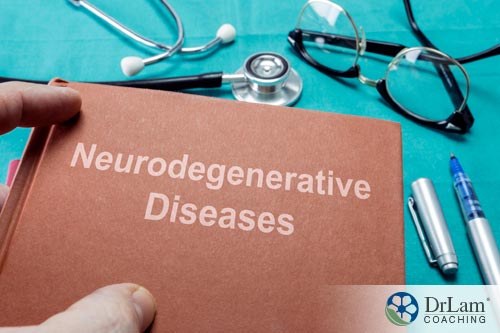 Neurodegenerative problems appear to be increasing, not only in the United States but around the world. There is no corresponding increase in options for dealing with these conditions. Research continues but doesn’t keep up with the prevalence of these conditions. Brain derived neurogenic factor (BDNF) has been associated with neurodegenerative problems and shows promise for certain conditions.
Neurodegenerative problems appear to be increasing, not only in the United States but around the world. There is no corresponding increase in options for dealing with these conditions. Research continues but doesn’t keep up with the prevalence of these conditions. Brain derived neurogenic factor (BDNF) has been associated with neurodegenerative problems and shows promise for certain conditions.
In the ongoing research, not a great deal is being conducted on the efficacy of natural neurology as a way of ameliorating the devastating consequences of the conditions. The use of natural neurology approaches has not been widely accepted in traditional medicine. However, it does appear to have significant benefit for people with neurodegenerative problems, as does natural medicine intervention for many issues.
Neurodegeneration is a loss of neurons that occurs gradually and can lead to death. Neurons are those cells in our bodies, primarily in the brain, that allow communication of information, help us learn, allow us to move in coordinated ways, and do many other essential functions.
The loss of these neurons is so gradual that symptoms of several conditions brought on by these losses don’t typically show up until later in life. Specific brain areas affected by the loss of neurons give rise to the characteristic symptoms that typify problems resulting from those losses. The more severe the symptoms, the more neuronal loss there has been.
In conditions related to significant memory loss, the neurons have most likely been lost in the hippocampus, the brain region involved in memory retention and retrieval. If the typical clinical triad of unstable posture, bradykinesia, and tremor is presented, loss of neurons in the substantia nigra is most likely. The loss is significant for this condition. This condition is, of course, Parkinson’s Disease. Around 70-80 percent of the dopaminergic neurons must be lost for these symptoms to appear.
These conditions occur over long periods of time and are affected by a number of environmental conditions – such as stress. This length of time and the gradual progression of loss make traditional evaluation and detection of conditions affecting the progression difficult.
Thus, the potential of natural neurology and its ability to work on nutritional and environmental effects grows in importance.
These are brain-related disorders and may encompass developmental, psychiatric, and neurodegenerative conditions. Whichever of these problems exists, the human toll in terms of loss of quality of life, need for continuing care, and financial burden is extremely high.
Many of these conditions affect people for years, even decades. Some continue progressing until they lead to the death of the individual. This gives a suggestion of the tremendous burden on individuals and their families.
If the neuronal loss and/or malfunction presents with psychiatric symptoms, the National Institute of Mental Health estimates that up to 25 percent of Americans in any given year are affected, and up to six percent have a significant disability due to the condition.
 Some of the neuronal loss shows up as memory-related issues. The 2012 annual report of the Alzheimer’s Association showed 5.4 million Americans have the condition, and the incidence of these kinds of loss-related issues involving memory is expected to continue increasing as the Baby Boomer population reaches old age. Estimates of 11 to 16 million people in the U.S. being affected by this condition by 2050 have been given.
Some of the neuronal loss shows up as memory-related issues. The 2012 annual report of the Alzheimer’s Association showed 5.4 million Americans have the condition, and the incidence of these kinds of loss-related issues involving memory is expected to continue increasing as the Baby Boomer population reaches old age. Estimates of 11 to 16 million people in the U.S. being affected by this condition by 2050 have been given.
If the neuronal loss presents as the triad of movement issues, the National Institute of Neurological Disorders and Stroke estimates 50,000 new cases of Parkinson’s Disease (as of 2006) will be evaluated yearly. Their estimate of 500,000 current cases may be low because this disorder is typically not detected until it is far advanced.
With these estimates, it is easy to see how significant neurodegenerative conditions are in this country. It is also easy to see why new, effective methods of remediating these conditions are needed, such as methods based on natural neurology and alternative medicine.
Also known as functional neurology, natural neurology looks at the dysfunction of the nervous system to pinpoint subtle changes that suggest a loss of neuronal ability, starting at the cellular or orthomolecular level, where cellular degeneration starts.
A practitioner utilizing natural neurology techniques will be looking at the need for fuel and activation so neurons can perform optimally. Fuel for neurons consists of oxygen, glucose, and essential nutrients. Activation is stimulation of the nervous system that brings about changes in the nerve cell. The natural neurology practitioner looks also at eliminating toxins, infectious agents, and immune responses that may prove to have a negative effect on neurons.
With natural neurology’s interest in environmental conditions affecting neurodegenerative problems, AFS and the effect of stress on the adrenal glands and their hormones is important.
When the body experiences stress from any source, a series of cascading processes is set in motion. The hypothalamic-pituitary-adrenal (HPA) axis is stimulated, leading ultimately to the adrenal glands secreting cortisol, the stress fighting hormone. Cortisol helps the body deal with the effects of stress on the various organ systems of the body, including the nervous system and its neurons.
Ideally, once the stress is over, the body reverts back to a homeostatic level and recovers. Unfortunately, in our world of continual stress, the body doesn’t get to recover. The adrenals continue secreting cortisol until a state of adrenal exhaustion occurs. At this point, insufficient cortisol is available to fight the stress effects, and the body begins showing symptoms of AFS.
These symptoms are sometimes vague in the beginning, making them difficult to assess. However, in the later stages of AFS, the symptoms become overwhelming.
Two conditions bearing directly on neurodegeneration appear when cortisol levels decline. One of these conditions is increased inflammatory response. Inflammation is implicated in many conditions of illness, including neuronal dysfunction. Cortisol is a potent anti-inflammatory. With a decrease in cortisol, there will be an increase in inflammation.
The other condition affecting neurodegeneration is an increased immune response with lower cortisol levels, and the immune response is implicated in loss of neurons.
Thus, continuing stress will lead to more neuron loss.
The practitioner of natural neurology’s focus on subtle changes in the nervous system falls in line with the concept of the NEM response to stress.
Traditionally trained practitioners approach the alleviating of illness conditions from the viewpoint of looking only at individual organs or organ systems that may be affected. This is a very limiting approach.
The NEM approach views all organ systems as interrelated. That is, what affects one system affects others as well. This allows practitioners to investigate and address the underlying causes rather than just the symptoms of an illness condition. This is a holistic functional medicine approach.
 In the case of neurodegenerative problems, the inflammatory response is one of importance. This response involves toxins and pathogens that affect body tissues and the function of the systems of the body. Under conditions of stress, inflammation increases as a result of metabolic changes brought on by stress.
In the case of neurodegenerative problems, the inflammatory response is one of importance. This response involves toxins and pathogens that affect body tissues and the function of the systems of the body. Under conditions of stress, inflammation increases as a result of metabolic changes brought on by stress.
This inflammation often is increased by proinflammatory cytokines that affect the nervous system. This increase in inflammation increases the loss of neurons. A leaky gut, stimulated by stress responses in the metabolic system, can release lipopolysaccharides that have been implicated in some neurodegenerative conditions.
The detoxification process that normally clears out toxins from the body is also negatively affected by stress. Toxins that would typically be taken out of the body are then present instead, leading to an increase in loss of neurons in parts of the body. These toxins come from the environment as well as from a dysbiosis of the gut system brought on by stress and its effects.
In the not-too-distant past, researchers and scientists believed a loss of neurons was permanent, especially the loss of brain neurons. Recent research and clinical practice have shown the brain to have marvelous ability to make new neurons. This is called neuroplasticity.
The ability of the brain to change and adapt as a result of learning has always been known. This is the way we learn as we progress through childhood, but this ability was not considered as having an application? to adults. Until the 1960s, the thinking was that adult brains were unchanging.
Now, research has shown the brain to have amazing abilities to create new pathways for neurons and to change existing ones in light of experience. Natural neurology also is showing this creation and change to happen in light of nutrition and lifestyle change, as well.
Neuroplasticity happens basically for two reasons. One is the normal changes due to experience and learning that goes on in our early years. The other is because of an insult to the brain, either by accident or through neurodegeneration. In the latter case, some parts of the brain may take over the functions of the parts that were lost or damaged.
Environment and genetics both play a part in neuroplasticity. One aspect of the influence of environment is nutrition and lifestyle change. These are the focus of natural neurology.
There are two types of neuroplasticity. One is functional, in which the brain moves the functions of one area of the brain to another. Often, this kind of neuroplasticity is seen when a person has a stroke and regains the functions lost as another area of the brain takes them over. The other type of neuroplasticity is structural. The brain is able to actually change its structure due to learning. It makes new connections among neurons and can even generate new neuronal growth.
A process known as synaptic pruning also takes place in the brain. This is the process of ridding the body of weak or never used connections between neurons. Neurons that are used frequently tend to grow stronger connections with other neurons. By pruning those weak connections and making stronger ones, the brain is able to change.
There are a number of factors that have either a positive or negative effect on neuroplasticity. Many of these factors are being seen to have an effect on neurodegenerative conditions and AFS as well.
 Studies have shown the beneficial effects of exercise on the structure and function of the brain. One study showed sixth graders who exercised vigorously to have better grades than those who engaged in only moderate exercise. Another study correlated physical activity in teen-aged girls with higher self-esteem and lower rates of depression.
Studies have shown the beneficial effects of exercise on the structure and function of the brain. One study showed sixth graders who exercised vigorously to have better grades than those who engaged in only moderate exercise. Another study correlated physical activity in teen-aged girls with higher self-esteem and lower rates of depression.
Older adults show less loss of brain tissue when they engage in aerobic exercise. This kind of activity can also increase the volume of both white and gray brain matter.
The functioning of the brain and memory are dependent on sleep. One theory regarding memory consolidation says the hippocampus is a temporary storage for new memories. In order for these memories to be transferred into long-term memory, good sleep is required.
The hippocampus also plays a part in the development of memory-related illness conditions. Lack of neurons in this brain area would prevent the short-term storage of many memories.
Sufficient sleep is also necessary for good cognitive functioning in both the long term and short term. Nutrition and lifestyle play important roles in getting good sleep. Eating or drinking too much before bed can interfere with sleep. So can too much exposure to the light from television or computers in the pre-bedtime hours.
Research is showing more and more how the gut system and the brain are interconnected. Certainly, lack of good nutrition will affect the functioning of the brain and its neurons, but there is more to this interaction of gut and brain than that.
The gut system has been labeled the “second brain.” The connection between the 100 million neurons in the gut system and the brain via the vagus nerve is vital to good brain function. If nutrition is poor, the gut doesn’t function well. If the gut doesn’t function well, the brain doesn’t function well.
If the gut is in a state of dysbiosis, filled with bacteria, yeast, toxins, mold, and parasites, there will be a negative effect on neuroplasticity. Dysbiosis leads to increased inflammation and an increased immune response. Both of these lead to an increase in neurodegeneration and inhibit neuroplasticity that would remediate the degeneration.
 As the brain ages, it depends on cellular defense mechanisms, such as neurotrophins like brain derived neurotrophic factor, or BDNF, to compensate for injury or disease. It also depends on the ability of the dendrites and synapses to change through the effects of factors like nutrition. Both neurotrophins and the effects of nutrition are areas of interest to natural neurology.
As the brain ages, it depends on cellular defense mechanisms, such as neurotrophins like brain derived neurotrophic factor, or BDNF, to compensate for injury or disease. It also depends on the ability of the dendrites and synapses to change through the effects of factors like nutrition. Both neurotrophins and the effects of nutrition are areas of interest to natural neurology.
The brain uses microglia and the central nervous system’s ability to increase antioxidant capacity to control the immune response. This is dependent on good nutrition, adequate hormones, supplements, and physical activity.
When neurodegeneration issues arise, the effects of nutrition, supplements, and the right balance of hormones gains in importance. With all of these in good supply, the aging brain is more able to utilize the process of neuroplasticity to recover functioning.
Food is the best medicine in most cases. This is because it directly affects us physically and psychologically through the mind-body interface. The idea behind increasing nutrition to improve neuroplasticity is to promote the growth of new brain cells and decrease inflammation. The following are some foods and nutrients that will help with BDNF.
 Magnesium has been shown to improve neuroplasticity. It is involved in over 400 processes in the body. Care must be taken when taking magnesium. Too much in the body has been known to cause an irregular heartbeat, low blood pressure, slowed breathing, confusion, and even death. Higher doses are likely unsafe. Those with advanced AFS may find magnesium triggering paradoxical reactions. Excessive magnesium can cause diarrhea.
Magnesium has been shown to improve neuroplasticity. It is involved in over 400 processes in the body. Care must be taken when taking magnesium. Too much in the body has been known to cause an irregular heartbeat, low blood pressure, slowed breathing, confusion, and even death. Higher doses are likely unsafe. Those with advanced AFS may find magnesium triggering paradoxical reactions. Excessive magnesium can cause diarrhea.
Research has shown turmeric to increase neuroplasticity. It also is a potent antioxidant and may promote the growth of new neurons. In general, there are no significant side effects with turmeric. Some people experience upset stomach, nausea, and dizziness.
If you’re pregnant, you should not take medicinal doses of turmeric. It tends to stimulate the uterus and may put the pregnancy at risk. Those who have a sensitive body or congested liver may not be able to tolerate it either.
This vitamin isn’t produced in your body, so it must come from nutritional sources. Deficiencies in vitamin B12 can result in neurodegeneration. Slight deficiencies also cause some difficulties with memory, fatigue, and depression. While vitamin B12 is generally considered safe for most people, women who are breastfeeding should not exceed the recommended dosage because the safety of larger amounts isn’t established. Due to the inherent stimulatory nature of vitamin B12<>, those who are sensitive or in advanced? stages of AFS need to be careful as excessive Vitamin B12 can trigger adrenal crashes.
This fatty acid is very good for the brain. Omega-3 should be kept in balance with omega-6. The latter is found in many food sources. There should be three times as much omega-3 as omega-6 in your diet. Omega-6 is pro-inflammatory. Because of its blood-thinning effect, those who are already on any type of blood thinner also need to be careful.
Crucial for optimum brain development, this fatty acid is the most abundant in the brain. Certain kinds of cold water fish are the best source of DHA. Overall, DHA is likely safe for most people. There may be a few side effects for some people, but these may be lessened if the DHA is taken with food. It may be unsafe in large doses due to thinning of the blood – leading to increased bleeding possibilities.
Brain derived neurogenic factor (BDNF) has been found to significantly decrease the risk of memory-related illness conditions and to decrease the risk of dementia. A recent study reported in the Journal of the American Medical Association followed a group of adults for ten years after measuring their baseline BDNF level.
The finding of most importance was a 50 percent lower rate of development of dementia in those with the highest baseline BDNF level compared to those with the lowest level. It appears that this protein plays a major role in the health of neurons.
 Early on, BDNF significantly influences the growth of brain cells and their ability to make connections with other brain cells, and this neurogenesis (the growing of new brain cells) has been shown to continue throughout life. This, along with the continual making of connections among brain cells, is the process of neuroplasticity.
Early on, BDNF significantly influences the growth of brain cells and their ability to make connections with other brain cells, and this neurogenesis (the growing of new brain cells) has been shown to continue throughout life. This, along with the continual making of connections among brain cells, is the process of neuroplasticity.
It appears that BDNF also may play a crucial role in modulating pro-inflammatory cytokines that may have a detrimental effect on the nervous system and neurons. The damage to neuronal structure and function caused by these pro-inflammatory cytokines leads to deficits in neuroplasticity and in the functioning of the nervous system.
An increase in pro-inflammatory cytokines may be due to a direct trauma of some kind or to an environmental stimulus of the kind that produces stress. This connection of pro-inflammatory cytokines to stress links them to AFS as well.
One of the main results of this increase of pro-inflammatory cytokines in the brain is an increase in oxidative and inflammatory molecules that affects neurogenesis and the functioning of neurons.
The negative effect of these inflammatory molecules on neurogenesis also detrimentally affects the survival and functioning of new neurons. Cognition will also be detrimentally affected by these inflammatory neurons.
With an increase in inflammation in the brain, BDNF decreases. Since BDNF plays a major role in neurogenesis and in aiding neurons to make more connections with other neurons, a decrease in this protein signals further loss of neurons. This suggests strongly that inflammation is a major culprit in neurodegeneration.
Research has shown that pro-inflammatory cytokines decrease the ability of the hippocampus to perform its role as a temporary site for memory retention, compromise spatial memory, and increase apoptosis of the brain. These are all symptoms related to those illness conditions that are age-related and that are a focus of natural neurology. There is also evidence to support the contention that these cytokines and the inflammation they encourage are involved in several psychiatric illness conditions.
BDNF has been studied in animal research with subjects genetically altered to have the symptoms of several neurodegenerative problems. It appears that increasing the levels of BDNF in the brains of these animals may lead to decreased symptoms. This would appear to suggest the use of BDNF in the clinical approaches to these neurodegenerative illness conditions.
With all of the current and probably future research into BDNF pointing the way to defeating, or at least ameliorating, loss of neuronal function and structure that is involved in neurodegenerative illness conditions, increasing BDNF is desirable. Some research seems to indicate this protein may also play a major role in preventing some of the symptoms of these dreaded conditions. Natural neurological research is pointed in that direction.
Discussion of some of the ways to increase BDNF follows.
Research has suggested it takes about two months for dietary changes to have an effect on BDNF levels. This appears to be true for either beneficial or detrimental effect.
Following this diet of high fat, adequate protein, and low carbohydrates may help your body burn fats instead of carbs. Rather than using carbohydrates to convert into glucose to feed your brain, this diet uses fats to convert into ketone bodies that replace glucose as fuel. Constipation and kidney stones may be side effects of this diet. Lipid and cholesterol levels may also increase. This diet needs to be personalized and individualized to be effective as most people cannot tolerate it without modification.
It’s important to stay away from the Standard American Diet if you want to increase BDNF. This diet is typically full of sugars and saturated fats.
Add more of this kind of fish oil for the Omega-3 fatty acids. The best source for fish oil is fresh cold water fish. If this isn’t available, walnuts, chia seeds, and flax seeds are also a source. These haven’t been studied as much as fish oil, so their potency may not be as strong. Fish oil supplements may be used, also, but may not work well. These supplements may increase the risk of dementia in the approximately 25 percent of the U.S. population with the ApoE4 gene.
 Has been shown by research to increase BDNF levels in mice. Some minor stomach problems may come with consuming soy. Those with estrogen dominance or thyroid imbalances need to be careful.
Has been shown by research to increase BDNF levels in mice. Some minor stomach problems may come with consuming soy. Those with estrogen dominance or thyroid imbalances need to be careful.
This appears to be a very good way to increase BDNF production. The exercise needs to be moderately strenuous and can be done in short bursts rather than a prolonged set. Be sure to check with your healthcare practitioner to determine if you’re healthy enough for this kind of exercise because exercise can trigger adrenal crashes for those who are weak.
Sugars and high fructose corn syrup do the opposite of eating healthy. They lower levels of BDNF and have been shown through research to have a negative effect on cognitive abilities.
Restricting your eating for relatively short periods of time allows your gut to heal itself. This is done through a flood of hormones the fasting releases in your body. Fasting overnight for a period of about 12 hours can be beneficial, but only if you are strong and healthy.
Many with advanced stages of AFS experiences frequent episodes of reactive hypoglycemia requiring frequent meals to replenish glucose. Fasting would not be appropriate for these individuals.
Be certain to check with your healthcare practitioner to determine whether this kind of fasting will interfere with any medications you may be taking or will be detrimental due to a medical condition.
Exercise your brain to increase BDNF also. This stimulation can be anything that causes you to think, problem solve, or plan. Excessive stimulation, such as watching an action movie, can trigger a massive adrenaline release that in turn can trigger adrenal crashes in those with advanced AFS.
There are some lifestyle changes you can implement that may have a beneficial effect on BDNF. Spending ample time with family and friends is one of them. Having good relationships that are nurturing may increase BDNF.
Getting outdoors and into the sun is another beneficial lifestyle change you can start. Many people spend their lives indoors at work and home. The sun does have beneficial qualities for the increase of BDNF. It is also important to focus on quality quiet time for those with AFS.
 These substances have been shown to increase levels of BDNF. Curcumin is found in turmeric and curry. Resveratrol in red grapes. Fermented forms are the easiest to assimilate and recommended if the body can tolerate.
These substances have been shown to increase levels of BDNF. Curcumin is found in turmeric and curry. Resveratrol in red grapes. Fermented forms are the easiest to assimilate and recommended if the body can tolerate.
Decreasing your stress level will assist in increasing BDNF levels. Lower stress leads to lower levels of inflammation and less immune system response. Both of these factors tend to decrease BDNF when they are high.
Sleep is necessary for good health. At least seven hours of sleep per night appears to help increase BDNF. Research has shown BDNF to decrease with sleep deprivation.
Research has indicated that adding green tea and/or its active ingredient (EGCG) will boost BDNF levels. Green tea appears to be safe when taken orally for most people. Taken long-term or in high doses, there may be side effects associated with the caffeine in green tea. These may include headaches, nervousness, sleep problems, irritability, and irregular heart beat. Adrenal crashes can be triggered as well. During pregnancy or when breastfeeding, drinking more than two cups of green tea per day is likely unsafe. There are certain illness conditions in which green tea may exacerbate the condition. Be sure to consult your healthcare practitioner.
With all of the evidence showing the beneficial effects of BDNF, some discussion of this protein’s effects on certain illness conditions is needed.
 The positive effect of BDNF on movement related illness conditions is a focal point for natural neurology. One of the movement related illness conditions that affect approximately one percent of the U.S. population over 55 years of age is Parkinson’s Disease (PD). Impairments of movement brought on by neuronal loss in the substantia nigra is a likely cause.
The positive effect of BDNF on movement related illness conditions is a focal point for natural neurology. One of the movement related illness conditions that affect approximately one percent of the U.S. population over 55 years of age is Parkinson’s Disease (PD). Impairments of movement brought on by neuronal loss in the substantia nigra is a likely cause.
Another function that is sometimes substantially decreased in this condition is cognition. BDNF positively affects both movement and cognition. It helps neurogenesis in the substantia nigra and works as a neuromodulator to help with cognition.
Its role in increasing the survival of dopaminergic neurons in the substantia nigra is documented through research. It is the loss of these neurons that brings on the movement issues in PD.
Huntington’s Disease (HD) is another of the movement related illness conditions that appear to be positively affected by BDNF. A mutant gene, huntingtin, may be responsible for the loss of neurons in the striatum, a brain area that affects movement. Excitotoxicity is the process through which the neurons die after stimulation. This appears to be connected to huntingtin in some way.
The process through which this mutant gene leads to the death of neurons isn’t clear yet, but appears to be related to lower levels of BDNF. These lower levels leave neurons susceptible to injury and death, possibly through the excitotoxicity related to huntingtin. Thus, increasing BDNF levels may increase the survivability of these neurons and decrease symptoms of HD.
One of the most commonly thought-of memory related illness conditions is Alzheimer’s Disease (AZ), another focus of natural neurology. Dementia is another of this type of condition. BDNF has been studied as a method of ameliorating the symptoms of these conditions.
Exercise and the corresponding increase in BDNF have been shown to decrease the cognitive effects and thus lower the severity of dementia. A good exercise program also lowers the risk of developing dementia.
Research with mice and exercise showed an increase in BDNF in the group of mice who engaged in relatively vigorous exercise. Furthermore, this increase was shown in the hippocampus, the brain area partially responsible for new learning and memory. Adding to the amount of exercise also appeared to increase the amount of BDNF available.
 An interesting finding from the Framingham Heart Study showed those subjects with high levels of BDNF had a lower risk of developing dementia. However, this finding was only with certain sub-groups in the study.
An interesting finding from the Framingham Heart Study showed those subjects with high levels of BDNF had a lower risk of developing dementia. However, this finding was only with certain sub-groups in the study.
Women, subjects 80 years of age or older, and those with college degrees were the sub-groups that showed this finding. The researchers reported BDNF to be an active part of the mechanism underlying dementia and Alzheimer’s rather than only a risk marker. BDNF levels were predictors of the development of these two illness conditions.
The suggestion was also made by the researchers that BDNF could mediate the effects of other factors associated with dementia risk, including such factors as activity level, diet, and mood.
Another illness condition related to cognition and movement disorders is one that affects children mostly, but has been found with increasing frequency in adults: Attention-Deficit Hyperactivity Disorder (ADHD). The possibility of BDNF bringing some relief from the symptoms of ADHD has been suggested by some researchers.
They point to the fact that the common medications used to help ADHD sufferers, psychostimulants and antidepressants, also tend to increase the level of BDNF. Natural neurology researchers look at this finding as a possible new way to ameliorate the symptoms of ADHD.
Exercise has been shown to benefit students with ADHD. It also is a very good way to increase levels of BDNF. Exercise not only improves mood and an overall state of mind, it also directly affects learning. It heightens opportunities for brain cells to make connections among themselves, which is the foundation for learning. This is the same thing that BDNF does as well.
Not only does exercise give more opportunities for connections among neurons, it also stimulates neurogenesis, the making of new neurons. It improves the environment for these neurons, making it more likely they will survive. Again, the same thing that BDNF does.
Exercise likewise helps the body deal with stress and its effects. When students with ADHD are physically fit, they are better able to handle not just the stress of dealing with their condition, but any other stressors that hit as well.
Exercise stresses cells in the body, making them more resilient when other stresses hit. It helps us build up the antioxidant enzymes and repair proteins in our bodies. We are also better able to rid the body of toxic wastes when we’re physically fit. Increasing levels of BDNF aid in this endeavor.
 The incidence of neurodegenerative illness conditions is increasing, possibly due to several factors. More people are living longer, so the prevalence increases among the population. The standard American diet of high sugar content and lots of additives from the processing of the foods leads to more leaky gut symptoms. These symptoms include increased inflammation and immune response. Both of these factors are implicated in neurodegeneration. They also are directly tied to lower levels of BDNF.
The incidence of neurodegenerative illness conditions is increasing, possibly due to several factors. More people are living longer, so the prevalence increases among the population. The standard American diet of high sugar content and lots of additives from the processing of the foods leads to more leaky gut symptoms. These symptoms include increased inflammation and immune response. Both of these factors are implicated in neurodegeneration. They also are directly tied to lower levels of BDNF.
Natural neurology is a growing scientific approach to dealing with these neurodegenerative illness conditions. It seeks to find the initial, subtle changes in the body that signal loss of neurons – those changes that often elude traditionally trained practitioners.
Once the natural neurologist finds such changes, the next step is making natural changes in nutrition and lifestyle that will slow or stop the loss of neurons. Current research has shown repeatedly that the brain can heal and regenerate itself. To do so requires the right combination of nutrients and lifestyle changes to provide the environment for the regeneration, growth, and survival of these new neurons.
At this point, research indicates Brain-Derived Neurotrophic Factor (BDNF) could be a key factor in this type of environment. Increasing the levels of BDNF in the brain appears to benefit neurogenesis and survivability of new neurons. Since the loss of neuron structure and function is the basis of many neurodegenerative illness conditions, increasing the chances of new neurons surviving should decrease the impact of these terrible conditions.
Natural neurology is the study of natural methods of remediating neurodegenerative illness conditions. BDNF is a protein that appears to be of great promise in stopping or preventing these illness conditions.